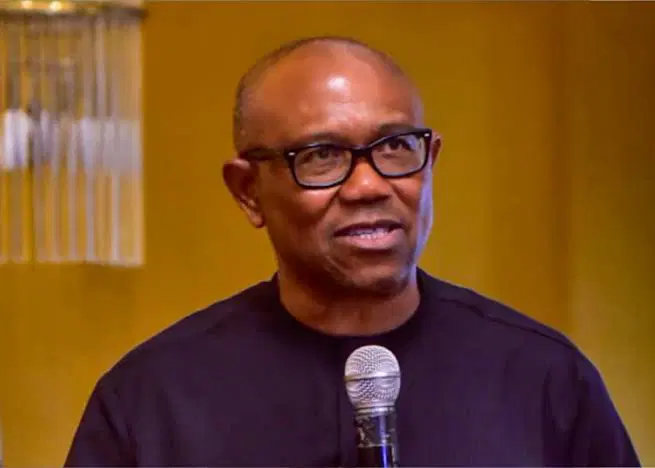A fresh legal storm is brewing around a high-profile property demolition in Ikeja, Lagos, as official court documents and a Certificate of Occupancy reveal that one Mrs. Deborah Oluwalogbon is the rightful owner of the disputed property, not a younger brother of Labour Party’s 2023 presidential candidate, Peter Obi, as previously claimed.
Obi, in a widely circulated post on X (formerly Twitter), decried what he described as the “collapse of the rule of law” under President Bola Tinubu’s administration. He alleged that security forces illegally demolished the property belonging to his brother’s company and barred them from entering the premises located at No. 57 Oduduwa Crescent, GRA, Ikeja.
“This morning, my youngest brother called me frantically, informing me that a group of people had invaded his company property in Ikeja, Lagos, and were demolishing the building,” Obi wrote, igniting public outrage. “They even told him the demolition had started over the weekend,” he added, claiming he rushed to Lagos only to be denied access by security agents.
However, documents obtained by SaharaReporters tell a different story. A ruling by the Lagos High Court on May 24, 2024, granted possession of the property to Mrs. Deborah Olorunlogbon, following a suit (ID/4378LM/2023) filed against an “unknown person” alleged to be occupying the premises illegally. The court ruled that since no defense was filed, the claimant’s request was deemed admitted, and she was awarded possession of the property along with ₦2 million in legal costs.
Further strengthening her claim, a Certificate of Occupancy signed by Lagos State Governor Babajide Sanwo-Olu and a 2003 land allocation by the federal government both identify Oluwalogbon as the legitimate titleholder.
Read also:
- Peter Obi slams President Tinubu’s Benue visit, says it lacked compassion, solemnity
- Kenneth Okonkwo accuses Peter Obi of betrayal
- PDP begs Peter Obi to return to party
Reacting to Obi’s public comments, Mayomi Afekuha, a lawyer representing Mrs. Oluwalogbon, accused Obi of “politicizing a legal matter” and misleading the public. He said Obi’s narrative was filled with inconsistencies, first stating the property belonged to his family, then to his brother, and later to a company.
“If Mr. Obi was genuinely interested in justice, he would have presented a balanced view instead of engaging in trial by social media,” Afekuha stated. “Nigeria is not lawless. It’s individuals like Peter Obi who undermine the judiciary by weaponizing their influence to sway public opinion.”
Afekuha added that Obi’s claims lacked supporting legal documentation. “Under Nigerian law, land ownership must be proven with original titles and court-validated documents, none of which Mr. Obi has presented to date. Rather than pursue a stay of execution, which the court can grant swiftly, Obi chose to create public sympathy via social media, a dangerous precedent that must be condemned.”
Meanwhile, Next Foods Limited, which is associated with Obi and is also laying claim to the demolished property, has now challenged the court order. Emeka Okpoko (SAN), the company’s lawyer, said they were unaware of the lawsuit until June 20, when individuals arrived to enforce possession. He said the suit was wrongfully filed against “persons unknown” and that the judgment was obtained without hearing the true owners.
“We’ve filed for a joinder to be included in the suit. We also submitted Deeds of Assignment and our Certificate of Occupancy to prove ownership,” Okpoko revealed. “We are asking the court to reverse the execution and convert the case to a full hearing, where all parties can present their sides.”
The legal showdown over the demolished property could set a significant precedent for high-stakes real estate disputes in Lagos. While Obi portrays the incident as another example of Nigeria’s decaying civil liberties, legal documents and procedural records suggest a more complicated reality, one that will likely be decided not on social media, but within the confines of a courtroom.
